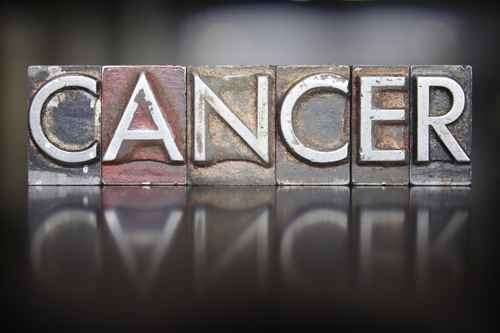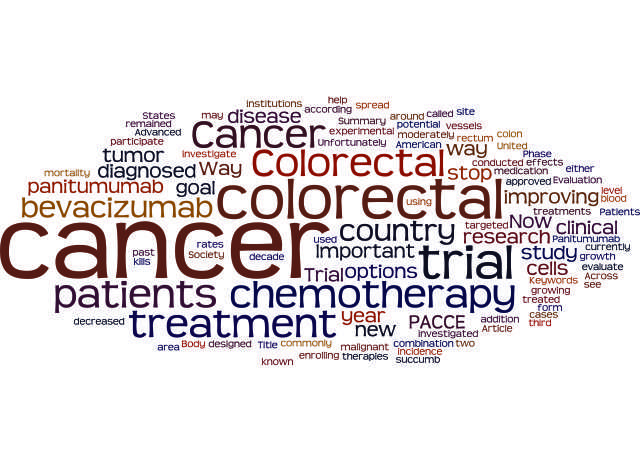Many people have encountered Cancer in the course of their lives. They have questions about the disease. One of the first questions asked is “What is Cancer?” Cancer1 is the uncontrolled growth of abnormal cells in the body. Cancer has a significant impact on society in the United States and across the world. Despite cancer’s impact, most people have very little knowledge of Cancer itself. “What is Cancer?” attempts to break down this terrible disease into easy to understand sections. Knowing more about Cancer is especially important for African-Americans since Cancer is the 2nd Leading cause of death among Blacks2, right behind heart disease.
The reference material in this post mostly came from the National Cancer Institute3 (NCI). The NCI breaks down Cancer into three major areas:
- Cancer Basics. The primary sections include What is Cancer, Causes and Prevention, Risk Factors, and Screening.
- Newly Diagnosed Cancer Patients
- Treatment
This article will provide a brief overview of the basics of Cancer.
Risk Factors for Cancer
It is usually not possible to know what causes one person to develop cancer while another one doesn’t, but research has shown that certain risk factors may increase a person’s chances of developing cancer. There are also certain factors that are linked to a lower likelihood of Cancer.
Most cancer risk (and protective) factors are initially identified in Epidemiology4 studies. In these studies, scientists look at large groups of people and compare those who develop cancer with those who don’t. These studies may show that people who develop cancer are more or less likely to behave in certain ways or be exposed to certain substances that those who do not develop cancer are not.
Such studies cannot prove that a behavior or substance causes cancer on their own. For example, the finding could be a result of chance or the true risk factor could be something other than the suspected risk factor. (Translation is what we think happened may not be what did happen). But findings of this type often get a great deal of attention in the media, and this can lead to wrong ideas about how cancer starts and spreads. (See the Common Cancer Myths and Misconceptions5 page for more information.) Fear is an enemy of knowledge about Cancer; you must overcome this dreadful emotion.
When many studies all point to a similar association between a potential risk factor and an increased risk of cancer, and when a possible mechanism exists that could explain how the risk factor could cause cancer, scientists then can be more confident about the relationship between the two.
The list below includes the most-studied known or suspected risk factors for cancer. Although some of these risk factors can be avoided, others—such as growing older—cannot. Limiting your exposure to avoidable risk factors may lower your risk of developing certain cancers. National Cancer Institute has listed some of the most important Risk Factors6 below:
- Age
- Alcohol
- Cancer-Causing Substances
- Chronic Inflammation
- Diet
- Hormones
- Immunosuppression
- Infectious Agents
- Obesity
- Radiation
- Sunlight
- Tobacco
Risk Factors such as smoking, diet, and obesity are huge issues in the African-American community. Smoking is not just a risk factor for cancer, but also a major problem in the birth of low weight infants among Black Women. (See the article on Black Women having twice the percentage of low weight infants than women of other races.) Some Risk Factors, including Sunlight, are underappreciated in the Black community. Yes, Black folks do get Skin Cancer! Use SPF protection7 like everyone else to help reduce the effect of Sunlight on your skin.
Causes of Cancer
Cancer is a genetic disease—that is, cancer is caused by certain changes in genes8 that control the way our cells function, especially how they grow and divide. These changes include mutations in the DNA9 that make up our genes.
Genetic changes that increase cancer risk can be inherited from our parents if the changes are present in germ cells, which are the reproductive cells of the body (eggs and sperm). Such changes, called germline changes, are found in every cell of the offspring (children).
Cancer-causing genetic changes can also be acquired during one’s lifetime, as the result of errors that occur as cells divide during a person’s lifetime or exposure to substances. Certain chemicals in tobacco smoke, and radiation, such as ultraviolet rays from the sun, that damage DNA can cause cancer to form with prolonged exposure.
Genetic changes that occur after conception are called somatic (or acquired) changes. They can arise at any time during a person’s life. The number of cells in the body that carry such changes depends on when the changes occur during a person’s lifetime.
In general, cancer cells have more genetic changes than normal cells, but each person’s cancer has a unique combination of genetic alterations. Some of these changes may be the result of the cancer itself, rather than the root cause. As the Cancer continues to grow, additional changes will occur. Even within the same tumor, cancer cells may have different genetic changes.
Prevention
Cancer prevention10 is action taken to lower your chances of getting cancer. In 2014, about 1.6 million people were diagnosed with cancer in the United States. In addition to the physical problems and emotional distress caused by cancer, the high costs of treatment are also an enormous burden to patients, their families, and the public. By preventing cancer, the number of new cases of cancer is lowered. Hopefully, this will reduce the burden and lower the number of deaths caused by cancer.
Cancer is not a single disease but a group of related diseases. Many things in our genes, lifestyle, and the environment around us affect our risk of getting cancer.
Scientists are studying many different ways to aid in cancer prevention, including the following:
- Ways to avoid or control things known to cause cancer.
- Changes in diet and lifestyle.
- Finding precancerous conditions early. Precancerous conditions are conditions that may become cancer.
- Chemoprevention(medicines to treat a precancerous condition or to keep cancer from starting).
Cancer Screening Overview
The National Cancer Institute (NCI) gives an overview of Cancer Screening. The key points are listed below:
- Cancer Screening is looking for cancer before a person has any symptoms.
- There are different kinds of screening tests.
- Screening tests have risks.
- Some screening tests can cause serious problems.
- False-positive test results are possible.
- False-negative test results are possible.
- Finding the Cancer may not improve the person’s health or help the person live longer.
- The PDQ cancer screening summaries11 are written to help people learn about screening tests.
Bibliography
- https://vsearch.nlm.nih.gov/vivisimo/cgi-bin/query-meta?v%3Aproject=medlineplus&v%3Asources=medlineplus-bundle&query=cancer
- http://www.cdc.gov/minorityhealth/populations/REMP/black.html
- http://www.cancer.gov/
- http://www.merriam-webster.com/dictionary/epidemiology
- http://www.cancer.gov/about-cancer/causes-prevention/risk/myths
- http://www.cancer.gov/about-cancer/causes-prevention/risk
- http://www.cancer.gov/types/skin/sun-tips
- http://www.cancer.gov/about-cancer/causes-prevention/genetics
- http://www.merriam-webster.com/dictionary/dna
- http://www.cancer.gov/about-cancer/causes-prevention/patient-prevention-overview-pdq
- http://www.cancer.gov/publications/pdq/information-summaries/screening
- http://www.cancer.gov/about-cancer/screening







